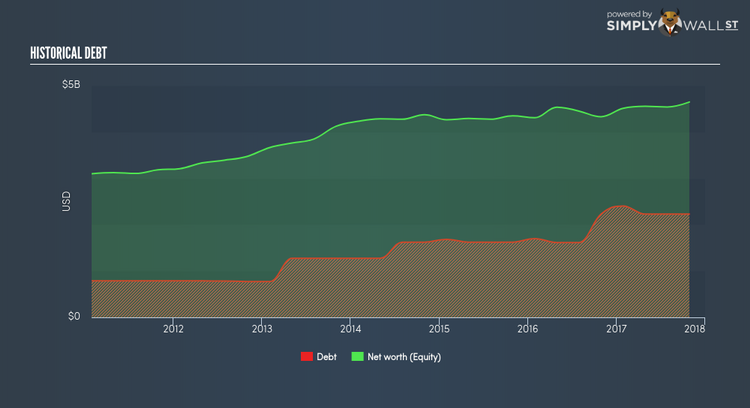Is The TJX Companies Inc (TJX) A Financially Sound Company?

Large-cap companies such as The TJX Companies Inc (NYSE:TJX), with a market-capitalization of USD $45.94B, are much sought after by risk-averse investors who find diversified revenue streams and strong capital returns more comforting than explosive growth potential. But another key factor to consider when investing in TJX is its financial health. There are always disruptions which destabilize an existing industry, and although large-caps are hard to knock down, it is useful to understand its level of resilience. Here are few basic financial health checks to judge whether a company fits the bill or there is an additional risk which you should consider before taking the plunge. Check out our latest analysis for TJX Companies
Does TJX face the risk of succumbing to its debt-load?
What is considered a high debt-to-equity ratio differs depending on the industry, because some industries tend to utilize more debt financing than others. As a rule of thumb, a financially healthy large-cap should have a ratio less than 40%. For TJX, the debt-to-equity ratio is 48.00%, which indicates that its debt can cause trouble for the company in a downturn but it is still at a manageable level. While debt-to-equity ratio has several factors at play, an easier way to check whether TJX’s leverage is at a sustainable level is to check its ability to service the debt. A company generating earnings (EBIT) at least three times its interest payments is considered financially sound. In TJX’s case, its interest is excessively covered by its earnings as the ratio sits at 104.4x. This means lenders may be inclined to lend more money to the company, as it is seen as safe in terms of payback.
Does TJX generate enough cash through operations?
A simple way to determine whether the company has put debt into good use is to look at its operating cash flow against its debt obligation. This also assesses TJX’s debt repayment capacity, which is not a big concern for a large company. TJX’s recent operating cash flow exceeded its debt obligations within the past year,which means TJX generates enough money in a year through its operations to pay off its near-term debt. Hence, debt poses a virtually insignificant risk for the company.This is great news for both debtholders and shareholders, as the company exhibits cautious cash and debt management.
Next Steps:
Are you a shareholder? TJX’s high cash coverage means that, although its debt levels are high, investors shouldn’t panic since the company is able to utilise its borrowings efficiently in order to generate cash flow. Since TJX’s capital structure may be different in the future, I recommend examining market expectations for TJX’s future growth on our free analysis platform.
Are you a potential investor? While understanding the serviceability of debt is important when evaluating which companies are viable investments, it shouldn’t be the deciding factor. Ultimately, debt financing is an important source of funding for companies seeking to grow through new projects and investments. So, You should continue to look at TJX’s Return on Capital Employed (ROCE) in order to see management’s track record at deploying funds in high-returning projects.
To help readers see pass the short term volatility of the financial market, we aim to bring you a long-term focused research analysis purely driven by fundamental data. Note that our analysis does not factor in the latest price sensitive company announcements.
The author is an independent contributor and at the time of publication had no position in the stocks mentioned.

